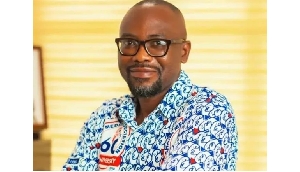President of the Ghana Medical Association (GMA) Dr. Frank Serebour, has cautioned hospital managers to be proactive in providing alternative power sources in the face of erratic power supply from the Electricity Company of Ghana (ECG).
Underscoring the critical nature of the services rendered by hospitals in saving lives and attending to patients, Dr. Serebour insisted, “We are in an emergency situation, so we have to plan whether there is continuous power supply or not.
“Even if your generator is not in use, you still have to ensure that it is maintained. You do not have the luxury to give excuses that you did not have power because your standby generator was not working,” he contended.
Dr. Serebour made this call in light of the power crises facing the country, its deleterious effects on essential services like hospitals, and the calls for the ECG to provide a time table to allow institutions and individuals plan their lives.
In an interview with Millicent Safo-Adu on Bresosem at Abusua FM, Dr Serebour said hospital managers cannot rely solely on the Electricity Company of Ghana nor a timetable.
Dr. Serebour who doubles as the Medical Superintendent for the Bekwai Government Hospital recounted that he has managed to keep the lights on at his facility where power supply from the national grid is extremely erratic.
“If you come to Bekwai Hospital, for instance, almost every hour the power will go off and come back. It’s not because ECG is not providing power, but we do have panels that ensure that every time power fluctuates to either high or too low voltage, it cuts off due to the machines we use.
“Immediately after that, the generator set will kick in. When the power becomes stable, the panel will switch off the generator set and revert to ECG,” he explained.
Commenting on the need for a time table to support contingency planning, Dr Serebour argued that a hospital is an emergency facility and cannot operate like a home with a set timetable.
“A Hospital is an emergency centre. A hospital is not a home. Whether there’s electricity or not, you must plan. Therefore, you can’t tell us there’s a power outage and you were not given a timetable, so you don’t have light. It’s not acceptable,” he stated
Tema General Hospital case
Dr. Serebour was of the view that the Tema General Hospital’s 2 hour power outage debacle which culminated in the suspected case of a baby dying as a result of the incident, was avoidable.
He disclosed that when Tema Government Hospital experienced a power outage, Bekwai Government Hospital faced a similar issue due to a faulty panel.
“At the time Tema Government Hospital did not have power, Bekwai Government Hospital also did not have electricity because their ACB Panel that ensures ECG power was faulty.
We ran on a generator for three days continuously, but nobody heard anything about the power outage issue. We were able to restore power yesterday, and that was when we agreed to replace and buy the new ACB 25A panel at a cost of Ghc122, 548. 87. I could have said we couldn’t pay, so the power should have been turned off”, he pointed out.
He advised managers to focus on local system management and have contingency plans in place.
“It’s time for managers to narrow down how they manage our systems locally. What were the management doing? Tema General Hospital is a big facility; you can have a generator and a backup as well. Assuming the generator is not functioning, what was their alternate plan that resulted in a two-hour outage?”
Dr. Serebour urged managers of health facilities to understand the critical nature of healthcare services.
“We must know where we are, how sensitive the work we’re doing is, and put in measures to ensure that when there are emergencies, we are able to deal with them, especially with power issues and water.”
General News of Monday, 1 April 2024
Source: starrfm.com.gh
Management excuse for 'dumsor' in any hospital is unacceptable – GMA President
Entertainment
















